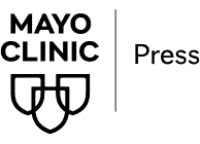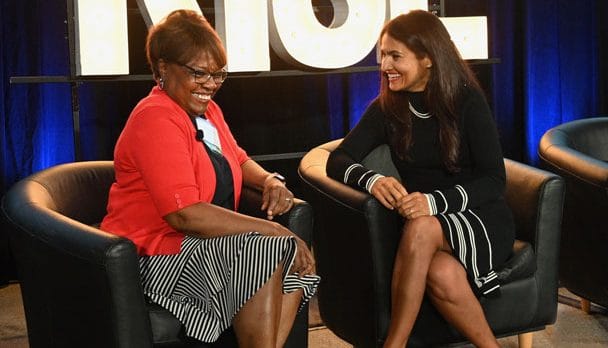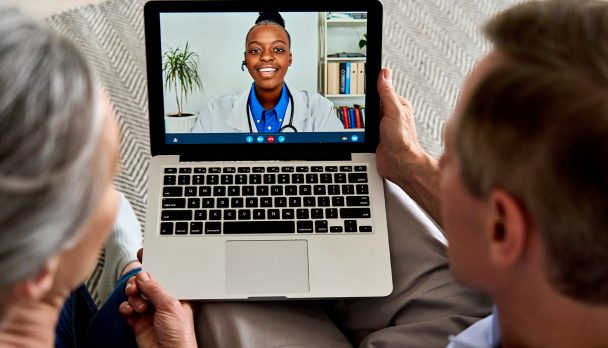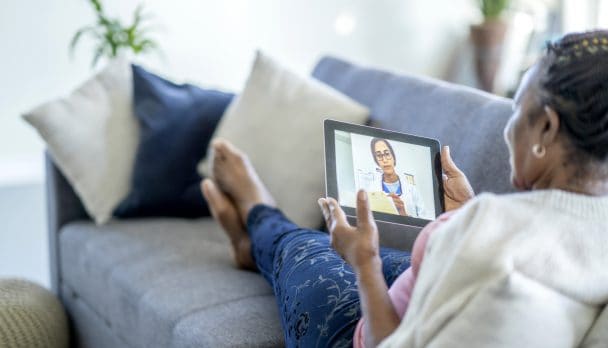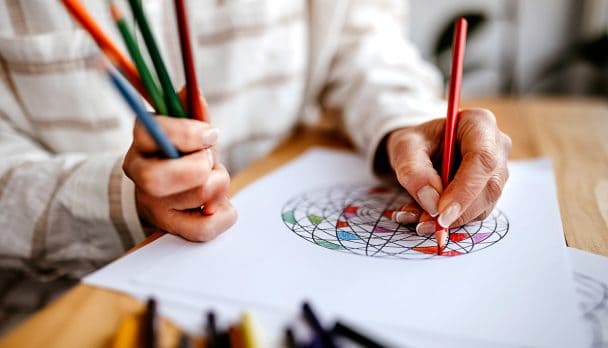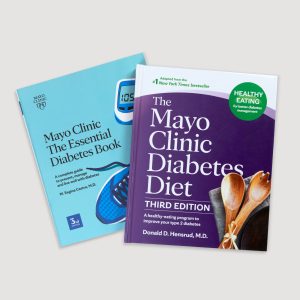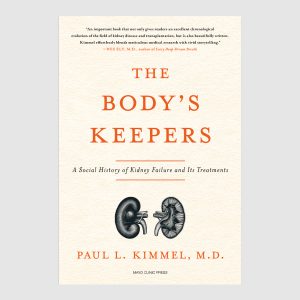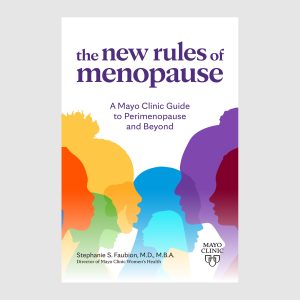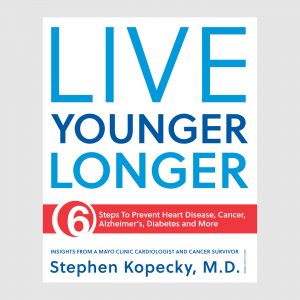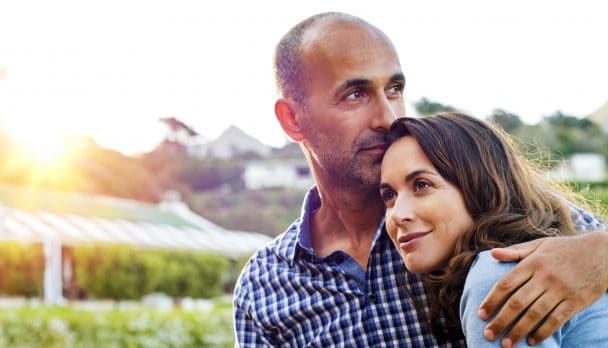On this episode of the RISE for Equity podcast, host Nicole Nfonoyim-Hara is joined by Dr. Aminah Jatoi and Dr. Yemi Sokumbi to discuss women in medicine. Drs. Jatoi and Sokumbi share their personal stories of deciding to practice medicine, explore the current field of medicine as women physicians, and offer insight into the growth of women in the medical workforce and leadership in the future.
“When I’ve asked colleagues about that gender disparity, and I’ve asked them, should we be doing something differently? Should we be giving women a bit of an edge? When I talk with women about that, when I introduce that possibility, their response is absolutely not. Nobody is asking for lowering of the bar. And everybody whom I talked with says we value being here. We value the opportunities here. We’re not asking for lowering the bar. We’re just asking to be able to compete as everybody else does. Compete nationally, be able to compete for grants, um, opportunities to write fantastic papers, opportunities to be able to go out and speak about our research, to send abstracts to competitive meetings, and to be able to be there and explain the work that we’re doing.” – Dr. Aminah Jatoi
“I don’t think we benefit from perfect leaders. I think we benefit from leaders who are intentional about their struggle, who lean into the struggle and can inspire folks coming behind them to work towards a particular goal. The more we can model that, the more difficult conversations become commonplace, [then] this topic becomes one everyone embraces.” – Dr. Yemi Sokumbi
Read the transcript:
Nicole Nfonoyim-Hara: Welcome to the RISE for Equity podcast. In this series, we’ll be talking to leading physicians, scientists, and innovators about what it’s going to take to transform healthcare for more just, more equitable future. I’m Nicole Nfonoyim-Hara, your host on the RISE for Equity podcast.
And today I’m joined by Dr. Aminah Jatoi and Dr. Yemi Sokumbi to discuss women in medicine. Dr. Jatoi and Sokumbi share their personal stories with us and offer insight into the growth of women in the medical workforce and leadership. Welcome both of you to the podcast.
Dr. Yemi Sokumbi: Thank you for having me.
Dr. Aminah Jatoi: Thank you.
Thank you very much. I appreciate being here.
Nicole Nfonoyim-Hara: Well, to get us started, all of you started on a personal journey to get to this day, to this point. Could you share your personal story about choosing medicine and what brought you to your specific field of interest? Dr. Jatoi, would you like to go first?
Dr. Aminah Jatoi: You know, I was very much inspired by my parents, and I recall my father saying many times when I was young that medicine is the noblest profession. You know, we help people, we do a lot to help people as healthcare providers and specifically as physicians.
For me, it was a combination of the humanistic traits of being a physician that seemed very appealing and that I’ve always strived to be part of, to hold on to, and to provide to my patients. And similarly, the science and medicine was also very compelling.
So those two together were motivations for me to go to medical school. Being at Mayo has been a huge opportunity, a huge, huge privilege, and I remain, towards the end of my career now, quite grateful for that privilege.
Nicole Nfonoyim-Hara: Thank you so much for sharing that. Dr. Sokumbi?
Dr. Yemi Sokumbi: Similar to Dr. Jatoi, the science and the human aspect of medicine really is, is what drew me to it. I’ll share just a little bit of my story.
I’m originally from Nigeria and grew up in Nigeria and moved to the States as a teenager and, you know, living in a developing country, you quickly see you’re in the front lines of realizing challenges in health care. And many, many specific examples growing up where I could see the gaps in health care.
Being a child who, for some reason, my mom says we can’t quite figure out, I’ve always been keen on impact and purpose. It was easy for me to align what I saw was a clear gap for my community growing up and moving to the U.S. and seeing the potential for impact. In a background where I’ve just always been curious.
And so the sciences were a natural fit for me, despite not having representation on knowing a physician personally, or having someone to guide me on the path. It was still a path I pursued because I had that impact in mind.
I had the ability to heal the, the, the concept of touching lives, the human aspect of connection that we’re privileged really to participate in as physicians. And the concept of touching lives, the human aspect of connection that we’re privileged to participate in as physicians. Similar to Dr. Jatoi, what a privilege to do it at a place like Mayo Clinic, where you are given the opportunity to live out those dreams, really, in the full sense of the word, similar to Dr Jatoi, what a privilege to do it at a place at Mayo Clinic, where you are really given the opportunity to live out those dreams, really, in the full sense of the word uncompromised medicine in caring for people and still pursuing science.
Nicole Nfonoyim-Hara: Thank you both. I can hear the passion and the purpose in both of your stories and in your voices. What kind of support did you have to help you get to where you are? And did you have any other women or people in your community mentoring you or offering you advice?
Dr. Yemi Sokumbi: So mentorship has been everything. Get a mentor, get a good mentor. And one of the things that I realized is I’ve accumulated a lot of mentors along the way, so you don’t need one mentor. Getting to this point for me has required mentorship in many, many different dimensions.
I will also point out that my mentors have not always looked like me. They haven’t always been women. They haven’t always been black women. In fact, some of my greatest advocates have been men and men of a different race than I am. And I think that’s important because a varied perspective, I think, does us all well.
I will say that, Your community that lifts you that is able to have a have a sense of who you are is important. When I first started having mentors earlier in my career, I have to be honest that I gave my mentor the part of me I thought they wanted to see. I hope that resonates with the audience.
What I mean is I came very prescriptive. I thought my mentor needed me to be perfect. I needed to be a certain way. But then over the years, I figured how do they help me if they don’t know what I struggle with? How can they in a truly valuable way, add to me contribute to me if I’m not able to share. So I think for me, one of the successful relationships I’ve had of mentors, I’ve been relationships where I chose to be vulnerable as a mentee.
It has allowed my mentor to meet me where I am. To not necessarily share or mentor me like they’ve mentored others because they have to understand and be clued into the lens by which I view the world and the lens by which I view my challenges and the lens by which I view where I’m hoping to go and what I’m hoping to accomplish.
It has truly been the catalyst I needed for my career on this journey in medicine.
Nicole Nfonoyim-Hara: Dr.Jatoi, what has your experience been like with mentorship, receiving mentorship, even giving mentorship as well?
Dr. Aminah Jatoi: Many aspects of what Dr. Sokumbi just said resonate with me. And one of them is this aspect of having more than one mentor over time. It helps to get different perspectives. It also helps to work with people and to be mentored by people who are maybe a little different from oneself because those perspectives, those different sorts of journeys, I think, help us as we develop in our careers.
I do want to say that there is one person who had. a fairly notable effect on my career. And somewhat ironically, this person never identified herself as a mentor to me. In fact, at times she would say, I’m not your mentor, which would always puzzle me. I guess we were in the same department, but we were in different areas.We had different clinical interests. We had different research interests. We were just different.
And yet, there would be many times when this person would just walk by and say, “Do you want to go to lunch?” This person would just stop by and have a conversation. This person would catch me in the hallway and just ask me how I was doing.
There’d be a few times when I would say: “I just liked your thoughts on this. I’m thinking about writing this grant. What do you think?”
And she would just say, critique it, just wasn’t going to be part of the grant, wasn’t going to be on it in any way, but would just critique it. And there would be so many times when I was on the cusp of going astray, when she would kind of push me back in line where I needed to be, or pull me back in line to where I needed to be.
And those sorts of interactions, I’ve often times reflected on that. Particularly as I’ve been at Mayo for more than 25 years, I’ve reflected on those sorts of interactions where, in effect, they were selfless. I mean, there was nothing on her part to be gained from those interactions. They were always wise interactions.
I always had some leeway in that I didn’t have to do what was suggested, and in fact, it was never overtly advised or suggested, you should do this, but rather, think about this. Maybe, maybe you’d want to go in a different direction. And so I, it was, it was maybe a different type of mentorship, but along the way, I can say, especially in the context of this podcast, I felt kind of affirmed because there weren’t that many women back then who were at a very high level, full professors in her case who had just accomplished a lot nationally, internationally.
And to have somebody like that periodically, just touch base with me, helped me tremendously in my career.
Nicole Nfonoyim-Hara: I love that. I think there’s such a push sometimes. And I know in my own experience working in medical education to formalize the mentorship program, which is very, you know, very important in that relationship, formalizing it in some way through programs.
But your example is powerful, as you said, in terms of those interactions and relationships that get built more organically. And that selfless sort of care that you both have talked about where people, you know, come in and, you know, build that with you and provide that guidance in some way.
So thank you both for sharing that. So as we continue on here, let’s, I guess we’re going to hone in a little bit more on the current state for women in medicine.
Can you tell us a little bit about why it’s important, in your opinion, to increase the number of women practicing medicine?
Dr. Yemi Sokumbi: You know, we’ve made tremendous progress in terms of the number of, of women in medicine, but the reason why that journey or that work cannot stop is because the women we’re getting in medicine are the pipeline. Women that will be leaders in medicine. And I think that’s what we struggle a little bit.
And that’s where the real gap lies because we’ve seen an increase in trend in women in medicine. Now, of course, the pandemic and the, the great resignation demonstrated
The issues with women that we are the caregivers, not only of, , of our kids, but even of aging parents. And we take in a lot more, than men and how that can impact our careers.
And we’ve seen that in the workforce. We see that as a Dr. Jatoi will likely mention in her role in academic promotions, we’ll see how, how that impacts our careers and the ability to advance our careers and the obstacles in place. And there is something quite extraordinary and powerful in seeing a woman do that, which you aspire to.
And so the representation helps to inspire the generation, coming behind. Dr. Jatoi might not remember this, but I was a Mayo medical student many years ago, and I was on her oncology service at Methodist hospital. And, I did my medical school and then I subsequently did my internship at Mayo, which I was also in her service.
And I will never forget, you know, the art of her watching her care for a patient who, who had cancer and the way she led a team of us as that comprised of a resident fellow and a typical medical team.
Watching another woman do it gives you a lens into thinking about how you’d like to practice medicine, and it couldn’t be overemphasized the importance of seeing varied representation of leadership styles.
And so when we think about having more women in medicine, I think of it as the key to a pipeline so that we can have more women in real leadership positions that a younger generation can look up to can aspire because I am truly an example of you have to see it to believe it. And if we’re not seeing enough of it, we’re not seeing enough stories about it.
Then I think that we do the future generation a disservice of advancing women in leadership.
Dr. Aminah Jatoi: I think we’re sort of at a point where there are lots of patients in this country who need health care.
We’re dealing with an older population. We’re also dealing with an influx of younger people now as we kind of look at age and what’s predicted for the future. I think we’re in a situation where we need to have all hands on deck. I mean, we, we are not as robust as a workforce as we need to be as a healthcare workforce.
For us to be… and realizing that we have women healthcare providers who are capable, who can certainly participate in all types of healthcare, whether it’s as an oncologist, as a dermatologist, as a surgeon of some sort, colorectal surgeon, and such colleagues. Women can provide wonderful care. We shouldn’t necessarily, we shouldn’t hold people back.
We should let them do what they want to do, what they’re able to do, what they’re most capable of doing. And I think that with some of the, I go so far as to say what some people describe in medicine right now is an impending crisis where we just need more people to help patients. There’s no reason why we should hold back.
We should try to develop the workforce as best we can. I don’t know that it is, of course it’s an equity issue, but I think it goes well beyond that. We need to do what’s good for our society, and that is attend to patients in need.
Nicole Nfonoyim-Hara: Thank you for sharing that, both of you. And we’re not going to really get, be able to get too much into it, but you know, there, there’s certainly a history of, you know, in this country and elsewhere, you know, where women weren’t allowed to practice medicine for so long.
We’re certainly not in that situation anymore. More women make up about a third of positions in the United States and that number is growing annually. Have you seen any changes from medical schools in medical education in the prioritization of the treatment of and support of students who are women?
Dr. Yemi Sokumbi: I can take that. And so, piggy backing on Dr. Jatoi’s point, I think one of the changes that has been tremendous and really uplifting to see is the recognition that women can be in any space in health care. I think those are the trends that have been more eye-opening, you know, traditionally, there were some specialties that had fewer women. Now there are no barriers.
To that, there were certain specialties that, you know, a female might feel discouraged to apply because they were worried about balancing their life. They were worried about perception, but now it’s just heartwarming to see. It’s commonplace to see women at all levels in health care. At all levels within, within the House of Medicine, different specialties.
And there, there is a running joke. I think I saw online about, an individual who was in a car accident and a question of the, the father was, saw the patient. They went into the hospital and the surgeon pulled up and they were about to operate and said, “Oh my word, this is my son.”
And back in the day, apparently people were confused and go, well, who, who, why would they say this is my son? The father was at the scene. Who could that be? Now it is obvious that it’s clearly the mother who’s the surgeon and this is well accepted, well recognized now. So it’s wonderful to see that. And beyond that.
To have students, learners, younger trainees, younger faculty going down this pathway that there is increased amount of support, you know, AMWA, which is the American Medical Association of Women Physicians, Dr. Files on staff here is very involved in that. And it’s tremendous the amount of program being done for medical students to ensure that they feel prepared to occupy all arenas in medicine.
And so there’s support. There is growth, and it’s wonderful to see.
Nicole Nfonoyim-Hara: Speaking from your own experience, what has it been like to be a woman in medicine in leadership right now? And what do you sort of see as the future of women in leadership?
Dr. Yemi Sokumbi: So I can speak to my experience here at Mayo, it’s a tremendous time because what’s happened is. It is not an anomaly to see a female leader.
In fact, at Mayo, seeing a chair of a department as a female is not a surprise. Having a committee chair be a female is not a surprise. And so what that has done is the modeling is there. And so as someone who’s coming up the ranks, you can see really the possibilities are endless. That’s a powerful thing, and I’m certain that what that will do is it will continue to inspire a future generation of future leaders at Mayo Clinic.
I am positive that the trends that we see at Mayo Clinic are not a fluke, that the trends are here to stay, and that at all positions, of leadership at Mayo Clinic will continue to see to see women. It has impacted me and how I mentor my students how I mentor my female and male students alike for the male students it’s the recognition that there is the parity with both men and women in terms of opportunities and for the female students, particularly knowing that in the background, there are the societal norms that, of course, have held us all back for quite a while, but to help them understand that really, that there is no limit to what can be accomplished. That based on personal choices or whatever path they choose to go, that their gender should not be the limiting factor.
Traditionally the idea had been, well, the male leader is tough. That’s why, but I’ve come to appreciate on my journey that my soft skills have a very strong place in leadership. And instead of putting them aside, I’ve actually leaned into that a little bit more and the recognition that the wide offerings of leadership style benefit our institution and perhaps most importantly really the House of Medicine and really can be an example on how you can have strong women leaders , benefit society.
Really the House of Medicine and really can be an example of how you can have strong women leaders. You can cultivate them, you can support them and these, they make significant contributions to healthcare.
Dr. Aminah Jatoi: I like what Dr. Sokumbi said about women leaders are not rarities. I mean, we are at an institution where women leaders are commonplace to a great extent. And it allows for women who are leading committees, who are leading divisions and departments to not necessarily be overly scrutinized based on gender, but it kind of, removes that kind of superficial aspect and allows all people, including women, to be able to think creatively, think collaboratively, and do work that serves everyone.
I mean that sort of extra scrutiny : ‘Are you a woman? Are you up for this?’ I don’t think that that even exists at our institution anymore.
Nicole Nfonoyim-Hara: Thank you both for, for sharing that. It does seem like a very exciting time.
One thing that we haven’t really talked too much about is how in your own experience, how intersecting identities create challenges and also opportunities for women in medicine.
And how can we work to, address those challenges?
Dr. Yemi Sokumbi: I love that question because I always tell folks that the dimensions that we all bring to the table are so varied, you know, the identity that that I bring to the table. I’m a woman, but I identify as a Black woman.
So, um, I see myself as the world sees me is what I say, but it’s an identity that I, that I’m strongly aligned with. But for some people, the identity is based on their religion. For others, it might be based on sexual orientation. For others, it’s actually based on nationality and the list goes on and on and on.
And the reason why it’s important to mention is because beyond the conversation of women. What we’re finding is you’re trying to combine both. And so what I experienced through the lens of being a woman, it might be a little bit different than what I experienced through the lens of being a Black individual. And what I have, my experience has been a combination of both.
There are individual challenges, and for some individuals, you have a combination of both challenges. And the hard part is for me, I can lean into my identity as a woman in medicine. And be appreciative of what I’ve seen change and what I’d like more to see. I do believe we’re on that path is to see more maybe women of color in those positions to going back to what we’re talking about. ‘If you see it, you can believe it. You can be it.’ And there is something powerful about seeing someone who looks like yourself, occupying a space of leadership, occupying or accomplishing big dreams.
I’ve been very fortunate. I have had those in my experience here at Mayo, but I’ve been very intentional about reaching out to those individuals because I’m very keen on understanding their journey. I love learning people’s stories because I believe their stories inform their journey and what a privilege to lean into people’s journeys to help inform your story.
Nicole Nfonoyim-Hara: Thank you, Dr. Sokumbi. Dr. Jatoi, your thoughts?
Dr. Aminah Jatoi: I think this concept of intersectionality is really a challenging one. As healthcare providers, we all need to be acutely aware of it.
There are disparities for transgender people. There are disparities for Black and African American people. Yes, we know that. But when you combine these groups of patients, the degree of disparity that these patients deal with just rises at an unbelievably high level the violence against these patients who intersect both those groups is extremely high.
And even if we as healthcare providers are not personally impacted by such bias I think that what we do need to do as healthcare providers is realize that even though we are in a safe place, that there are many people across our country who aren’t, and that we need to be aware of that, we need to respond in time to make sure that we are supporting these people.especially when they come to us as patients.
I think that, that for some of these patients being able to see healthcare providers who are diverse, not just as women, but diverse with respect to other aspects of their identity and intersecting aspects of their identity, allow us to be able to provide the best care to patients.
Nicole Nfonoyim-Hara: Thank you for that powerful reflection, Dr Jatoi and intersectionality is it’s a complex thing. And I think what you described to, I mean, there’s sort of the idea of intersecting identities, but the idea that then the disparities, the, adverse outcomes are deepened, right?
When you sort of start adding all these different vectors of intersecting identities as well.
I was wondering, if you could talk a little bit about academic promotions and your work with that some challenges there with regard to the conversation we’re having today about women in medicine.
Dr. Aminah Jatoi: Yeah, I appreciate being able to talk about that. The, you know, the cold truth is that we are not as far along as we would like to be. The percentage of women who are full professors is lower than the percentage of men who are full professors.
I have faith that over time, there will be equal numbers, equal percentages of women and as full professors, as associate professors, as men, um, I think that that gender disparity over time will go away.
So that’s one point. The second point I’d like to make is that informally, when I’ve asked colleagues about that gender disparity, and I’ve asked them, should we be doing something differently? Should we be giving women a bit of an edge? When I talk with women about that, when I introduce that possibility, their response is absolutely not.
Nobody is asking for lowering of the bar. And everybody whom I talked with says we value being here. We value the opportunities here. We’re not asking for lowering the bar. We’re just asking to be able to compete as everybody else does. Compete nationally, be able to compete for grants, opportunities to write fantastic papers, opportunities to be able to go out and speak about our research, to send abstracts to competitive meetings, and to be able to be there and explain the work that we’re doing.
So, I actually found those conversations, again, informal, quite inspiring. That leads to my first point, which is, in time, I think that those disparities that we’re seeing now will result in equal percentages between men and women. And I would also go so far as to say that it probably won’t be as long as we think it’s going to be, because that pipeline is really filling up, and women in our institution are making tremendous progress very quickly.
Nicole Nfonoyim-Hara: Well, thank you. I saw you nodding quite a bit. Dr. Sokumbi, in affirmation, any, any final thoughts about that?
Dr. Yemi Sokumbi: I’m in complete agreement that, as, as a woman, as a Black woman, I would never want my accomplishments to be tailored to me.
I think there’s something, the privilege to compete with your peers, the, privilege to accomplish an endeavor and to know that you were worthy of said title is inspiring for women. And I think it empowers women. We want to see women advance. And I agree with Dr.Jatoi we’re going in that direction, but we also want to see them set up for success so that when they do have this tremendous accomplishments, the sense of pride is complete. It’s full and they can really, really lean into it because of the mindset of having a tailored process is, does not lead to the kind of leaders that we’re hoping to cultivate.
Nicole Nfonoyim-Hara: Thank you, Dr. Sokumbi. As we close up here, what are some resources, um, that you think might be most advantageous or helpful for women pursuing a career in medicine?
Dr. Aminah Jatoi: I Continue to believe that these one-on-one conversations with colleagues, whether they’re with women, with men, these one-on-one meetings, I think they help a lot. There are times when you don’t necessarily want to put out there a struggle that you’re having. You want to just quietly engage somebody, get some advice. I think as I started to allude to at the beginning of this podcast, that’s what helped me oftentimes in my career, just one on one touching base with colleagues who truly, truly cared about how I did here at Mayo, cared about my career. And I think that oftentimes that that helps more than anything else.
Nicole Nfonoyim-Hara: Well, thank you. Dr. Sokumbi?
Dr. Yemi Sokumbi: I will emphasize that the journey is an active process, and so I would encourage folks to not necessarily wait to be fed, but to go get your food. What I mean by that is that youhat you have to lean into the resources available. So, in my practice, we have our American Association of Dermatology, we have our American Society of Dermatopathology, all of those programs actually have targeted programs for women.
That’s just in my very small specialty of dermatology. Imagine the entire house of medicine here at Mayo, I continue to see programming focused around this discussion. So, this discussion has in a very good way become quite common. I love to, I love to see that. And I, and I know we’re going to get more of it.
We do have opportunities even for academic time where people get internal grants where you have academic time for women who are primary caregivers to enable their academic promotion to give them time to work on projects to give them time to network to develop themselves.
Even when you’re given time, what you do with the time is absolutely critical. That’s the active engagement part of it. So, I would say that we’re in a tremendous time for women. The opportunities are vast, but we have to realize we’re in that time. Okay, to take advantage of the time to ensure that we continue to propel what we’re doing forward.
And then finally, on the leadership side, I would say that so keen that we continue to have important conversations around this and keen that we have vulnerable leaders and a vulnerable leadership style that enables the one on one discussion that sort of helps with the halo effect that that prevents a trainee or fellow a junior faculty from relating to an to a leader.
Every so often it is important that we pull back the curtain a little bit and share some of the struggles because those are struggles that I would have benefited from knowing versus seeing my leaders in a very perfect glow and thinking that I had to attain perfection to accomplish leadership.
I don’t think we benefit from perfect leaders. I think we benefit from leaders who are intentional about their struggle, who lean into the struggle and can inspire folks coming behind them to work towards a particular goal. And so, the more we can model that, the more difficult conversations become commonplace, and this topic becomes when everyone embraces.
Nicole Nfonoyim-Hara: Wonderful. Thank you both so much for joining us today, Dr. Sokumbi and Dr. Jatoi, you’ve shared some really valuable insights with us about women in medicine and what the future of leadership looks like and where we are now and where we’re going. And we so appreciate your own leadership and the work that you’re doing and the story that you’ve shared about what it’s going to take to move us forward.
So, thank you for that.
Dr. Yemi Sokumbi: Thank you for having us.
Dr. Aminah Jatoi: Yes. Thank you.
Nicole Nfonoyim-Hara: And that’s all for today’s episode of the RISE for Equity podcast by Mayo Clinic. I’m your host, Nicole Nfonoyim-Hara, and we hope you’ll join us for our next episode. See you then.
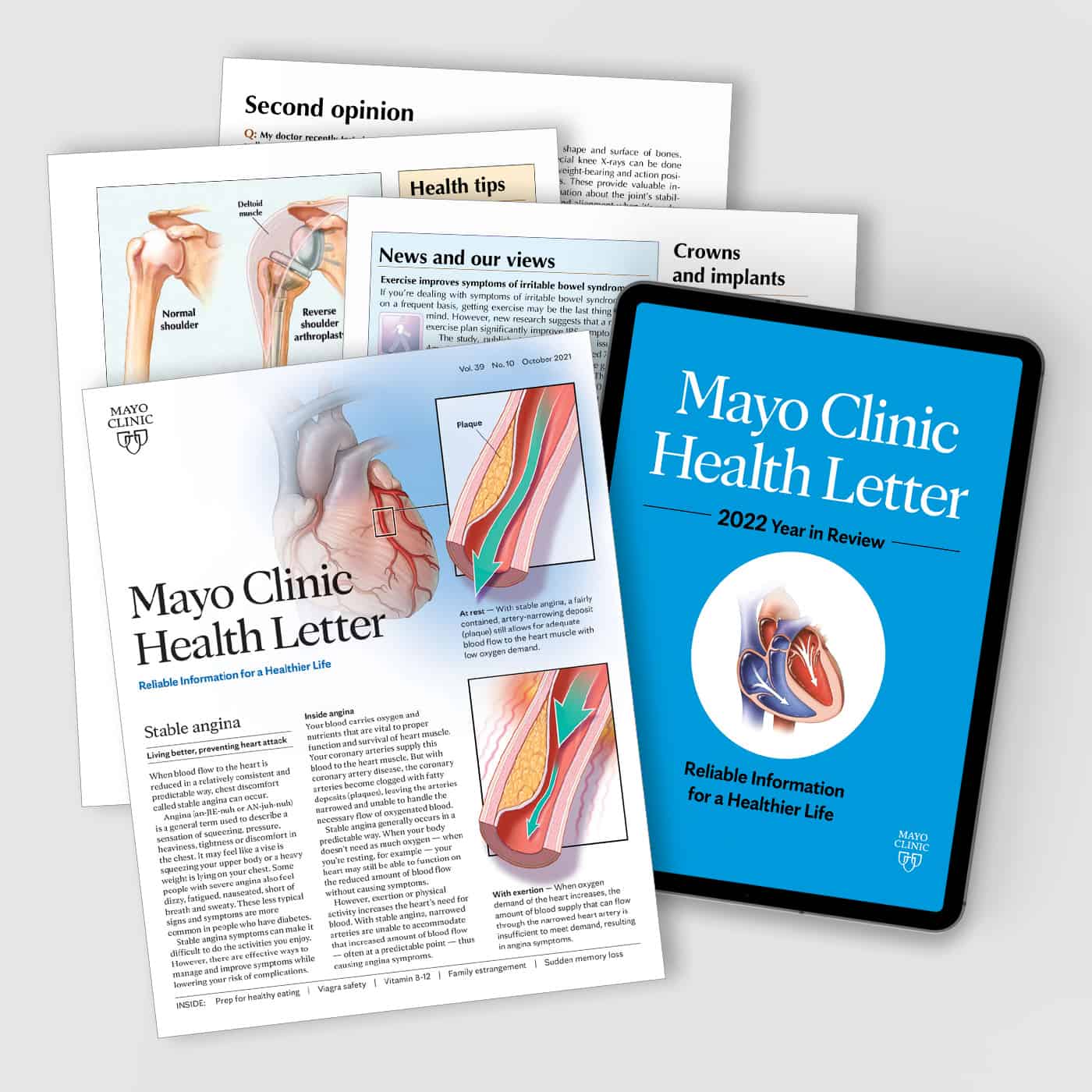
Relevant reading
Health Letter Subscriptions
Get direct access to the knowledge, wisdom, advice and practical information on healthy living from Mayo Clinic, one of the world's foremost health authorities. Your subscription includes twelve monthly 8-page issues and four Special Reports. Each 8-page issue of the Mayo Clinic Health Letter is filled with full-color medical illustrations,…
